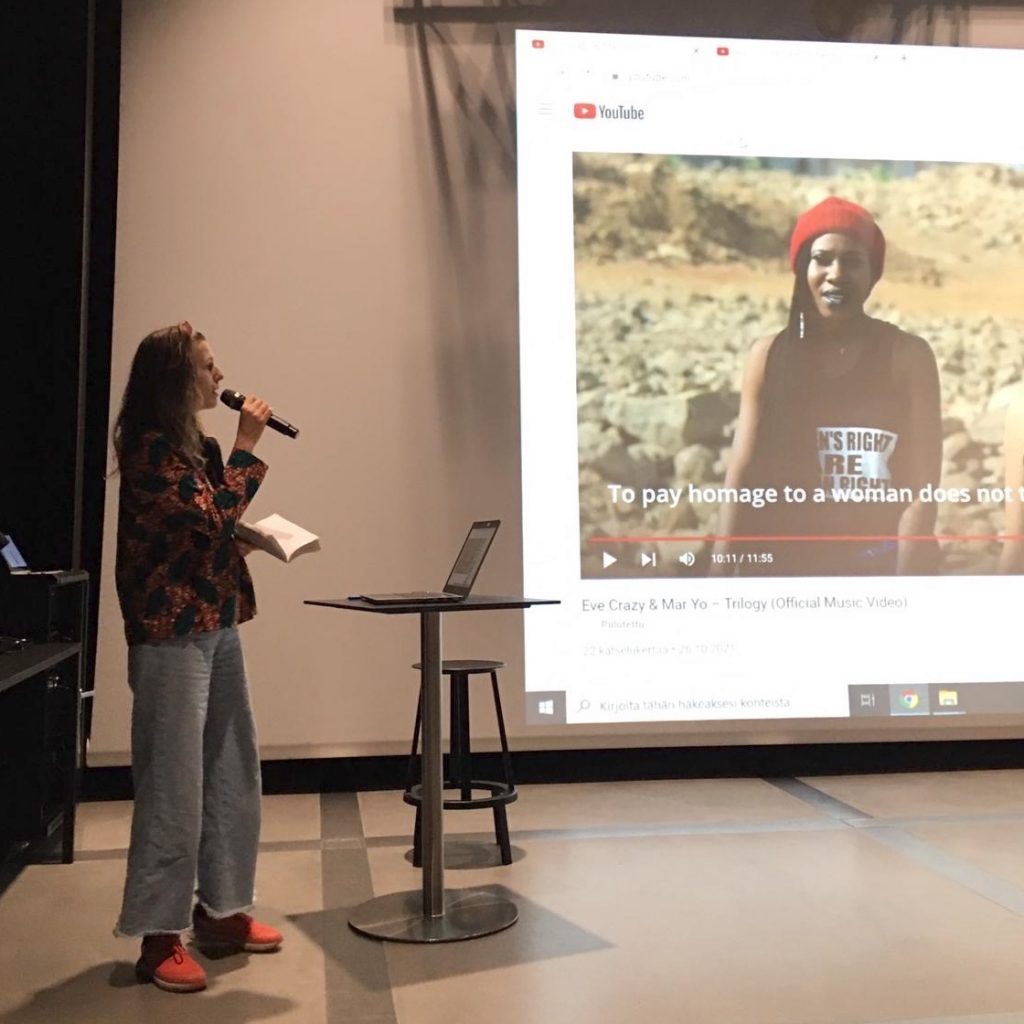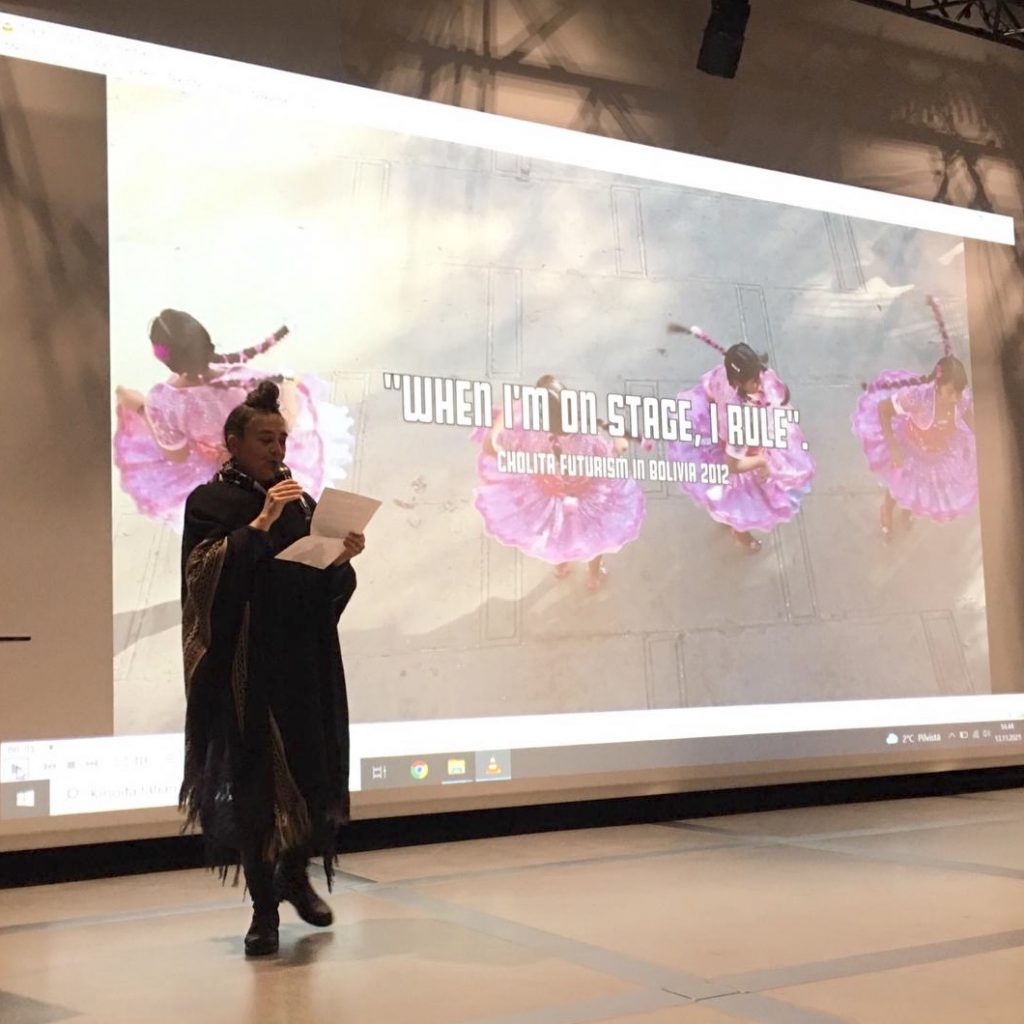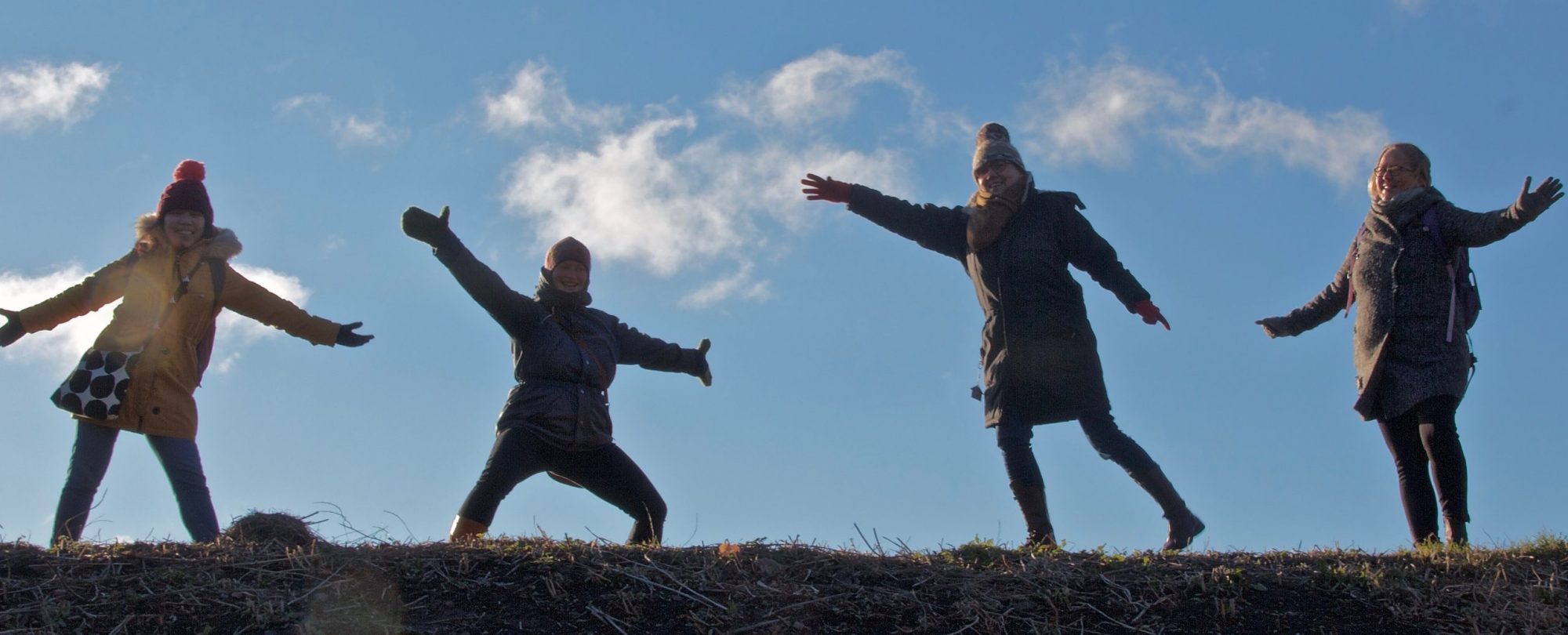Written by Nina Öhman
The World Wide Women team presented the project publicly for the first time on November 13th 2021 in the Etnosoi! seminar ”Women, Music and the World.” At the seminar, the team members talked about their own projects and showed related video clips or played music. The presentations centered on female musicians and the crossing of different kinds of boundaries. The seminar gathered about 30 listeners into the Maijansali hall of the Central Library Oodi; their participation demonstrated the interest of the audience towards research on women’s musical life.

As a whole, the team’s presentations emphasized music’s great importance as a means of self-expression for women around the world. For many female musicians and their audiences, music is not just a “decoration” of everyday life, not just entertainment (although it can also be that), but musical activities give them a possibility for expressing a social stance, for encaging in activism and for creating visions of a better future.
As the presentations demonstrated, women’s work in music is often transgressive and challenges social expectations. For example, the musical collaboration between Marjo Smolander and Awa Sané (a.k.a. Eve Crazy) helped them to find a common ground and deal with the position of women in society and within the family. Their music video opposes violence towards women through its music and visuals.

Ying-Hsien Chen presented her ethnographic research on the kantele playing of Japanese women. For them, kantele playing enables a peaceful state for the individual and a female musical space for the community of kantele enthusiasts. Jenni Hanikka for her part presented Malian flutes, which are traditionally associated with men. She also played traditional Malian music arranged in her own style with the flutes. Additionally, a montage of the documentary film about Bolivian cholita groups called When I’m on Stage, I Rule by Siboné Oroza and Antti Nordin was shown. They also told about the different stages of the film production and the choices they had made while shooting the film.
The presentations in the event introduced in many ways the music in women’s lives as a rich and unique research topic. Like for example the film about cholita artists showed, combined with other art forms, such as dance and visual expression, music offers endless opportunities for creating social impact.

After the presentation, we discussed among other themes how a researcher’s or a musician’s social position influences how they are received in the field, as well as the results of a study. The speakers told about negotiations that often were not related to their work but rather to local social norms and the expectations towards then as objects of romantic interest, researchers, musicians or mothers. During the discussion it was also stated that female researchers/musicians and their collaborators may find a common ground for their work exactly through their gender identity. On the other hand, other aspects of identity can define positions of power or build relationships in different ways.
Overall, the presentations of the event demonstrated how music enables the processing of problems relating to inequality and the reflection of the root causes of inequality. At the same time, the presentations provided a diverse picture of the joys of women’s musical activities for both the musicians and their audiences. In addition to joy, women’s musical activities produce new ideas and knowledge that expand our understanding of the world.
